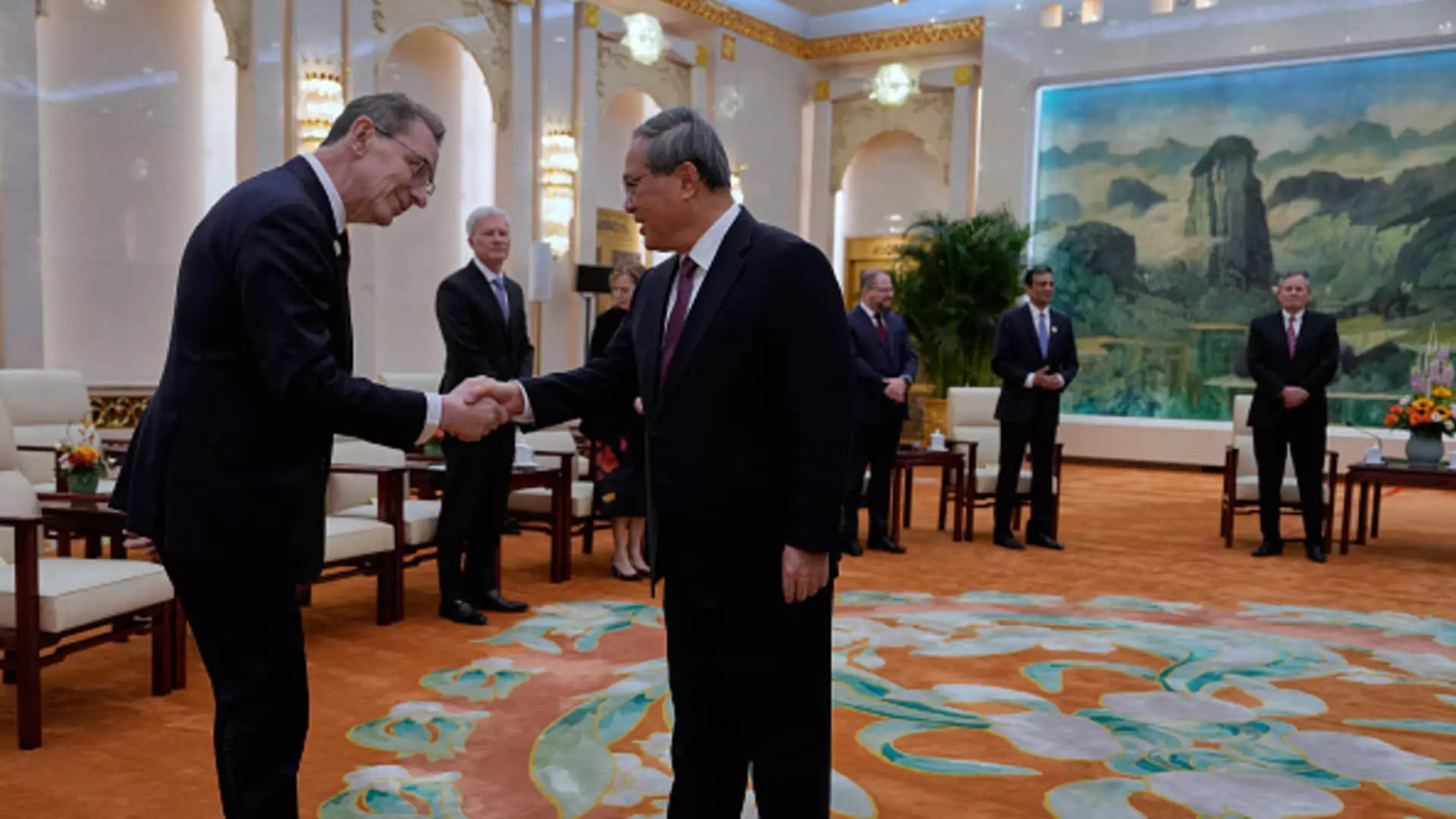The recent visit of U.S. Republican Senator Steve Daines to Beijing represents a notable pivot in the ongoing saga of U.S.-China relations. Accompanied by leading executives from major corporations, Daines’ initiative signals a break from the prolonged hiatus caused by intensifying geopolitical tensions and trade disputes. It’s about time American leaders embrace the reality that engagement is essential, especially when our economies are so intricately tied. Daines, known for his strong ties to the Trump administration, has entered the Chinese capital at a time that necessitates dialogue rather than division, meeting with Chinese Premier Li Qiang and other high-ranking officials who were, until recently, viewed with skepticism in the U.S.
The significance of this trip cannot be overstated. Daines’ visit makes him the first American politician to engage face-to-face with Chinese leadership since Trump took office. This newly minted diplomatic outreach offers a valuable opportunity to resolve miscommunications and navigate the murky waters of trade relations, especially after the previous administration adopted a confrontational stance leading to tariffs that negatively impacted both countries.
A New Breed of Economic Diplomacy
What’s refreshing about Daines’ approach is his simultaneous acknowledgment of the corporate entity while advocating for political dialogue. By involving top-tier CEOs from companies with decades of experience operating in China, he is advocating an economic diplomacy that recognizes and reinforces American business interests abroad. “Collectively, these seven companies have over 275 years of experience of doing business in China,” he stated, underscoring the importance of shared interests in fostering international cooperation.
This perspective reshapes the narrative surrounding American businesses operating in China. Traditionally seen as adversaries in a zero-sum game where one country’s gain is another’s loss, this trip emphasizes the potential for mutual benefit. The complexities of trade are not merely about tariffs but also about relationships and shared commitments that have stood the test of time.
Rhetoric of Cooperation vs. Zero-Sum Mentality
Li Qiang’s quote during the meeting encapsulates the essence of what’s at stake: “Our two sides need to choose dialogue over confrontation, win-win cooperation over zero-sum competition.” Such sentiments should not only be viewed as diplomatic niceties but as guiding principles for future interactions between the two superpowers.
Despite the charged atmosphere stemming from the fentanyl crisis and trade tariffs, a shift toward collaborative dialogue—where both nations put emphasis on finding common ground rather than focusing on differences—presents a more constructive future. U.S. leadership must realize that economic strain caused by tariffs disproportionately affects ordinary citizens in both countries, fueling resentment and potentially undermining stability both economically and politically.
Trade Negotiations and Domestic Pressures
As the specter of a new round of tariffs looms, Daines’ timing is astute. A review of trade agreements from the previous administration is set to conclude in the coming days, making it critical for U.S. policymakers to recognize the dire implications of escalating tensions. A working relationship between America and China is no longer a luxury; it’s a necessity for the economic well-being of both nations.
Daines’ meetings take place against a backdrop of apprehension about an impending recession in both economies. As China attempts to attract foreign investment, it’s evident that the goal should not just be to overcome current tariffs but to establish a platform for sustainable economic growth. The call for enhanced dialogues isn’t merely about avoiding confrontation; rather, it’s about preparing both the U.S. and China for the inevitable shocks of a globalized life where interdependence reigns supreme.
The Crucial Role of American Corporations
Most importantly, the involvement of U.S. executives symbolizes a profound understanding: American corporations are valuable ambassadors when it comes to diplomacy. As these executives navigate the complexities of doing business in China, they serve as a bridge that can channel mutual understanding and foster relationships that are beneficial for all parties involved.
In an age marked by increasing nationalism and protectionist policies, the necessity for American businesses to champion a narrative of cooperation in the face of adversity cannot be overstated. These enterprises are on the front lines of international trade, making them critical stakeholders in discussions about the future of U.S. economic strategy.
Daines’ trip to China, seen through this lens, offers a glimpse into a pragmatic, necessary narrative shift that could ease the tensions that have long marred U.S.-China relations. This venture emphasizes the need for dialogue, recognizes the enduring power of economic interdependence, and ultimately fosters a climate conducive to future collaboration.

